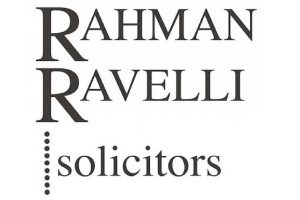Taking the all-important steps to prevent bribery

Aziz Rahman of award-winning business crime solicitors Rahman Ravelli explains what constitutes bribery – and how those in business can avoid bribery-related problems.
For many, the mental image of bribery is a brown envelope stuffed with notes handed surreptitiously from one person to another. But while this can be the case it is far from the only way that bribery is conducted.

The Bribery Act
In the UK, the reason why such awareness and knowledge is important is the Bribery Act 2010. Putting it in the most straightforward terms, this is the most far-reaching piece of anti-bribery legislation in the world. It means that any company or individual with a UK connection can be prosecuted in the UK for bribery carried out anywhere in the world on their behalf by staff, an intermediary, a third party or trading partner.
The Act makes it an offence to offer or receive a bribe. It also creates the specific offence of bribing a foreign official. The Act also makes it possible for a company to be prosecuted for failing to prevent bribery being committed on its behalf – even if the company did not know that the bribery was being or had been carried out.
The penalties under the Act are a maximum of 10 years’ imprisonment for individuals involved and unlimited fines. It is a strong piece of piece of anti-corruption legislation and it means that nobody in business can be even the slightest bit complacent when it comes to preventing and identifying bribery.
Defining Bribery
In the Bribery Act, bribery is defined as the giving or receiving of a financial or other advantage in order to encourage improper performance of a position of trust. Bribery can take the form of cash (as we mentioned earlier) but it can also be goods and services and various types of preferential treatment.
For this reason alone, those in business need to be aware of the risks – and conscious that bribery may be lurking in their work environment; even if nobody has been offered the stereotypical bundle of banknotes.
The scope of the Act, the size of any penalties that can be imposed under it and the all-important fact that ignorance of bribery is no defence under the Act are all powerful reasons why everyone in business must do all they can to ensure they do not fall foul of it.
Prevention
The key to not falling foul of the Act is proper preventative procedures. These procedures need to be the result of careful assessment of the risks and should be reviewed regularly and amended whenever necessary to reflect any new or increased bribery risk.
It is essential that thorough due diligence checks are made on the companies and individuals you do business with, in order to make sure their background is bribery free and that they are also acting on the need to prevent bribery.
But a company must also examine, just as closely, its own workings. Those in senior positions must be aware of all aspects of the Bribery Act. Its working practices have to be assessed to determine what changes can be made to reduce the potential for bribery. Checks have to be made on a company’s staff as well as on any agents or other third parties that have a role representing the company anywhere in the world. Staff and all other representatives of the company must be made aware of the Bribery Act and the penalties it carries. Appropriate channels need to be devised for people to report any bribery-related concerns that they may have.
This is not a case of having procedures simply for appearance’s sake. Such procedures need to be devised in a way that recognises the bribery risks facing a company. Only by doing this can the risks be reduced and any suggestion of bribery be identified as soon as possible. They can be the difference between a company preventing bribery and being ignorant of it, which can be the difference between a clean reputation and a conviction.
Even if bribery is committed, a company is likely to receive more lenient treatment if it can demonstrate it had good procedures in place. For example, the Serious Fraud Office can offer a deferred prosecution agreement (DPA) to firms as an alternative to prosecution. Under a DPA, the company agrees to meet certain conditions in order to avoid the cost and reputational damage of being prosecuted.
If companies are not sure how to go about tackling the dangers of bribery, they must seek legal help. Taking a simplified, outdated view of bribery and doing little to prevent it can only lead to problems.
Aziz Rahman is founder of Rahman Ravelli; a top-ranked business crime law firm in national and international legal guides.









